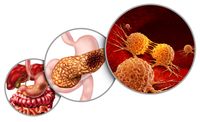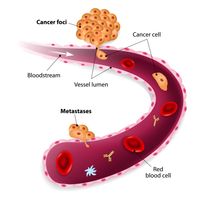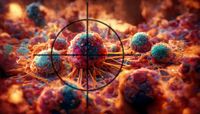Molecular, Discovery and Translational Surgical Oncology
Decoding Molecular Stress Signaling in Cancer
Our research is dedicated to unraveling molecular stress signaling pathways in cancer, with the goal of understanding how these mechanisms drive tumor initiation, progression, metastasis, and therapy resistance.
By translating fundamental molecular discoveries into innovative therapeutic strategies, we aim to advance precision surgical oncology and improve patient outcomes.
Research Focus 1
The role of the UPR in pancreatic cancer tumor growth
Pancreatic cancer is among the most aggressive malignancies, characterized by a poor prognosis and rising incidence. Despite recent advancements, the only potentially curative treatment remains extensive surgery combined with chemotherapy, underscoring the urgent need to identify new therapeutic targets and develop innovative treatment strategies. Throughout tumor initiation, progression, and metastasis, cancer cells encounter various intrinsic and extrinsic endoplasmic reticulum (ER) stressors. Our research focuses on investigating the unfolded protein response (UPR) as a potential therapeutic target in pancreatic cancer.
Research Focus 2
The role of the UPR in pancreatic cancer metastasis
Early systemic dissemination and distant metastasis to the liver, lung, and peritoneal cavity are defining characteristics of pancreatic cancer. However, the role of the unfolded protein response (UPR) in metastasis remains poorly understood. Our research focuses on investigating the impact of the UPR during the critical stages of the metastatic cascade in pancreatic cancer.
Research Focus 3
The role of the UPR in therapy resistance
Up to 80% of pancreatic cancer patients are diagnosed at an advanced stage, rendering them ineligible for primary surgical resection. At this stage, treatment primarily relies on gemcitabine- and fluoropyrimidine-based chemotherapy. However, the effectiveness of these therapies is often severely limited by the development of chemoresistance. Given that chemotherapy imposes additional extrinsic stress on cancer cells—prompting them to activate the unfolded protein response (UPR) as an adaptive mechanism—understanding the molecular drivers of chemoresistance in pancreatic cancer is crucial for developing strategies to overcome it.


